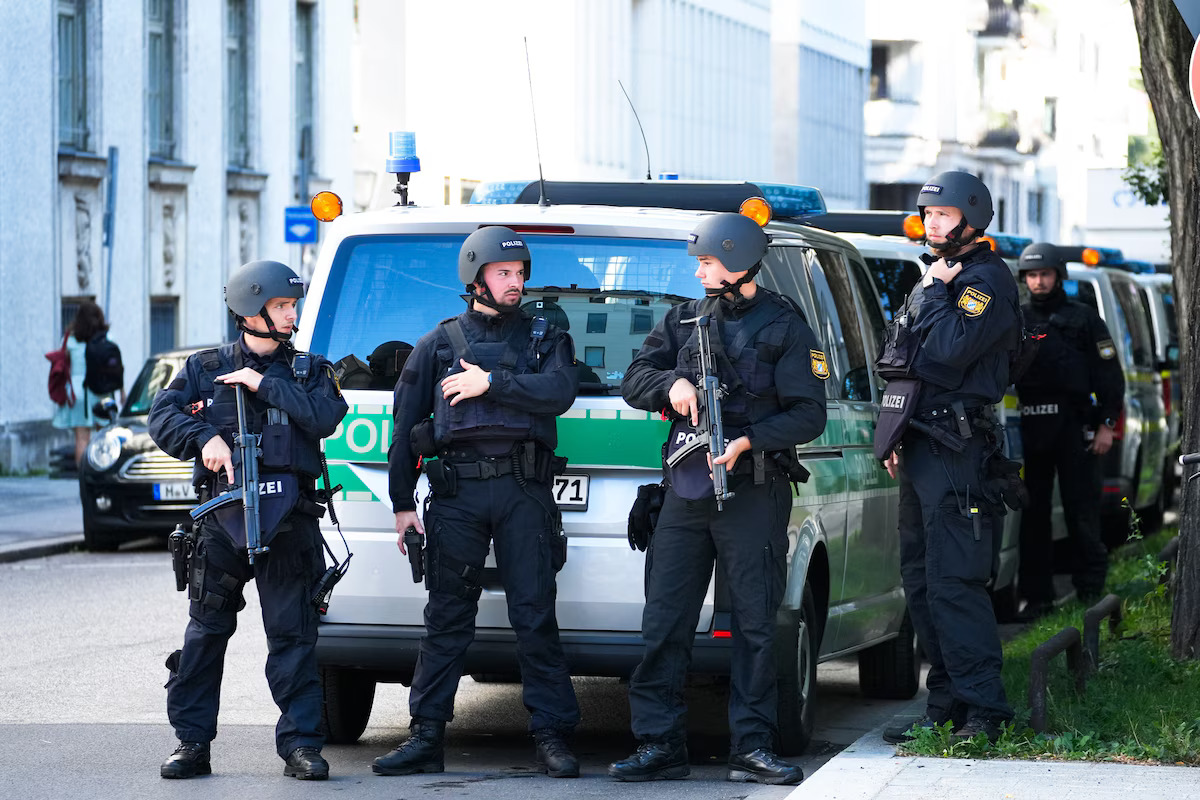In Munich on Thursday, German police fatally shot an 18-year-old Austrian gunman near the Israeli consulate, prompting concerns about the security of Israeli sites in Germany. The gunman, armed with an old carbine rifle and bayonet, fired shots in the Maxvorstadt district before engaging in a shootout with five officers. The incident took place near a Nazi history museum, and on the anniversary of the 1972 Munich Olympics attack, leading authorities to investigate potential links between the two events.
Austrian authorities had previously identified the gunman as a suspected Islamist, having reported him to police last year for alleged ties to an extremist group. Although the details of his residence remain unclear, reports indicate that he recently traveled from Austria, where he lived in the Salzburg area. The Israeli consulate, which was closed on Thursday for a memorial event related to the 1972 massacre, reported no injuries among its staff.

Munich Shooting Raises Security Concerns for Israeli Sites Amid Historical Tensions
In response to the incident, German Interior Minister Nancy Faeser emphasized the critical need to protect Israeli facilities in the country. The shooting occurred amidst a politically charged atmosphere in Germany, where the far-right Alternative for Germany (AfD) recently achieved a significant regional election victory, marking a shift in the nation’s political landscape.
Israeli President Isaac Herzog condemned the attack, noting its occurrence on a day of remembrance for the 1972 Munich massacre, and expressed solidarity with Germany in condemning the violence. The incident is reminiscent of a 2019 attack in Halle, Germany, where a gunman targeted a synagogue on Yom Kippur, resulting in the deaths of two people.
This event highlights ongoing concerns about extremist violence in Germany, particularly in relation to Jewish and Israeli sites. The timing of the attack, coinciding with a significant historical anniversary, further intensifies the need for heightened security and vigilance in protecting vulnerable communities.
